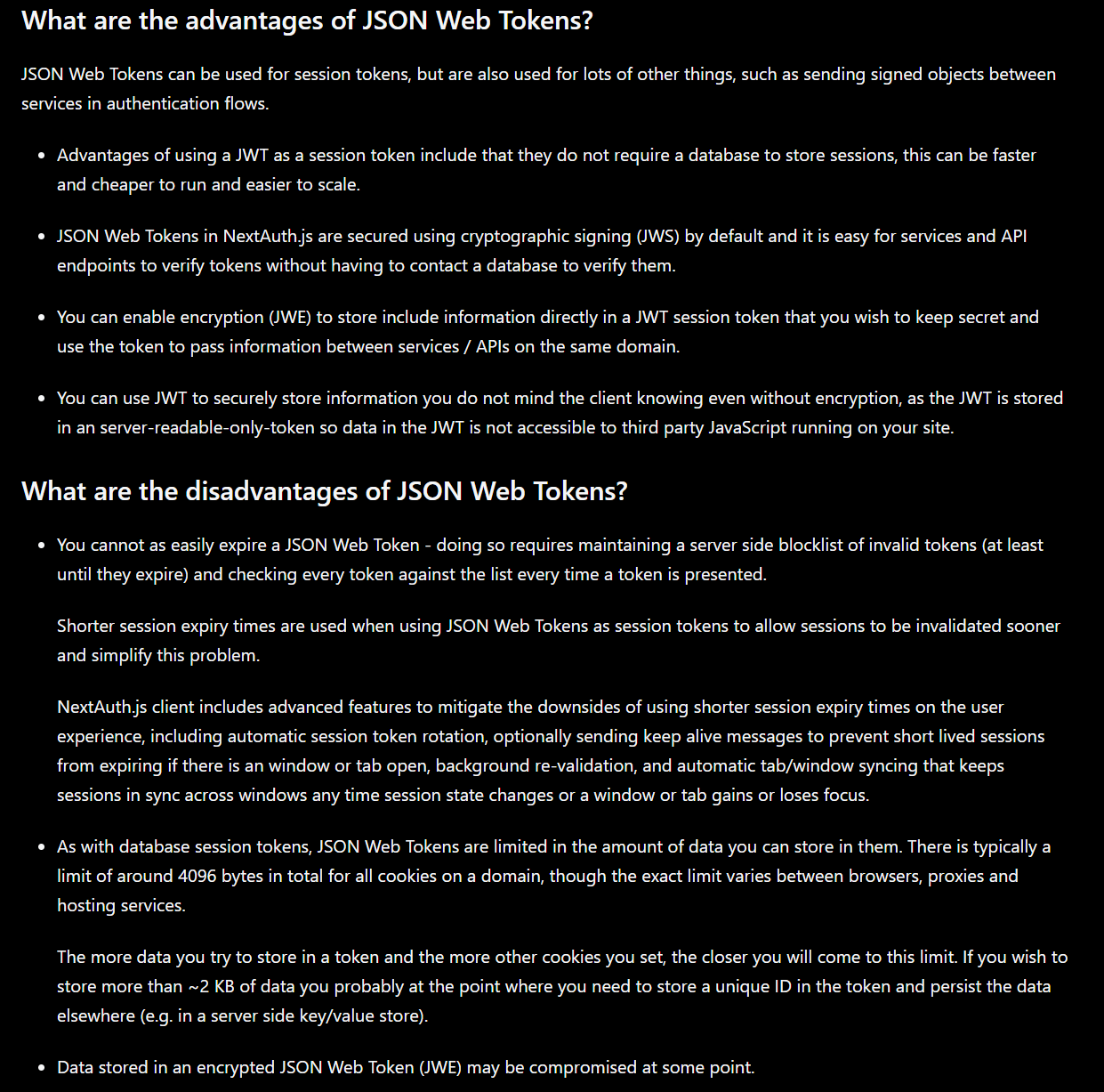What is the combined benefit of using (1) JWT + (2) as session tokens + (3) with database? #1571
-
|
Can someone help me understand the combined benefit of using 3 separate things together: JWT as a session token with a database? Pros and cons? Clarification: This is not a question about JWT alone, by itself but 3 things combined: (1) JWT (2) as session token (3) used with a database. My setup: No 3rd party OAuth Provider, just "Credentials" as the Provider (i.e. username + password). I have a database. Related:
|
Beta Was this translation helpful? Give feedback.
Replies: 2 comments 4 replies
-
|
See more here: https://next-auth.js.org/faq#json-web-tokens I don't see why it can't be used as a Bearer token. |
Beta Was this translation helpful? Give feedback.
-
Great question! Advantages of using a database are you a can persist users while not logged in and generally need it for things like any service that has any sort of ordering / payment / billing, for persisting user identity while offline, persisting Access Tokens and Refresh Tokens, etc. You would want to persist users in a database almost any time you have content a user can edit and modify, but if a site is using auth to grant read only access and no billing is involved, you likely don't need a database. Using JWT with database gives you all these advantages (as users are persisted somewhere) but is:
A disadvantage of using JWT for sessions (instead of using database sessions) is you can't do things like allow users to expire sessions they might have on on remote devices (e.g. where they realise they have forgotten to sign out from a computer or device they no longer have access to) and you can't easily limit how many times someone can be signed in. These are not native features of NextAuth.js (but are possible), and are probably fair to consider edge cases.
You cannot read the JWT for NextAuth.js from client side JavaScript, to prevent session hijacking it is stored as a HTTP Only (aka "server only") cookie, but if the Apollo endpoint was on exactly the same domain (e.g. example.com/api/apollo) then it could be passed as a regular cookie when calling the endpoint via fetch() - but would not be as a Bearer Token. Alternatively, you can always "proxy" requests to your GraphQL backend via you own /api/ endpoint and pass the JWT and/or generate a JWT and insert it as the Bearer Token. on the fly (less efficient but much simpler and easier to get working). There are also other longer, more complicated answers, but I hope this is somewhat helpful. |
Beta Was this translation helpful? Give feedback.

Great question!
Advantages of using a database are you a can persist users while not logged in and generally need it for things like any service that has any sort of ordering / payment / billing, for persisting user identity while offline, persisting Access Tokens and Refresh Tokens, etc.
You would want to persist users in a database almost any time you have content a user can edit and modify, but if a site is using auth to grant read only access and no billing is involved, you likely don't need a database.
Using JWT with database gives you all …